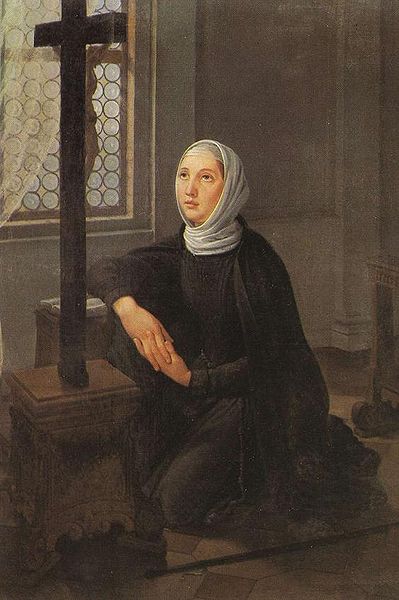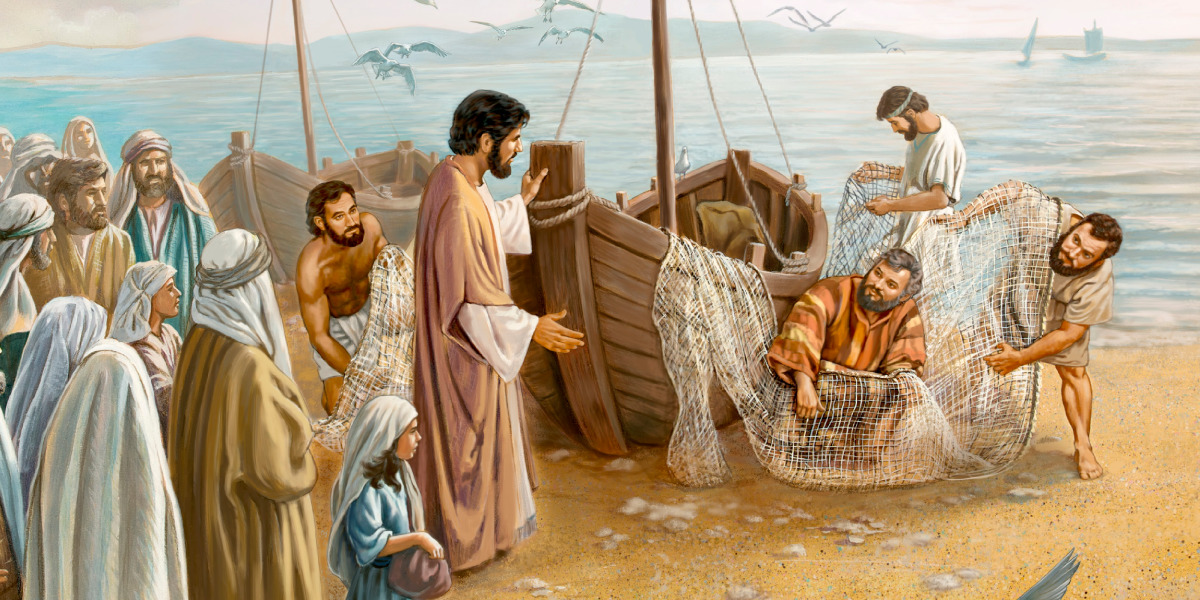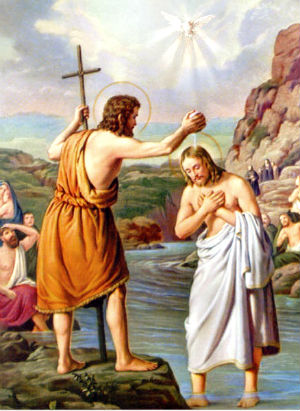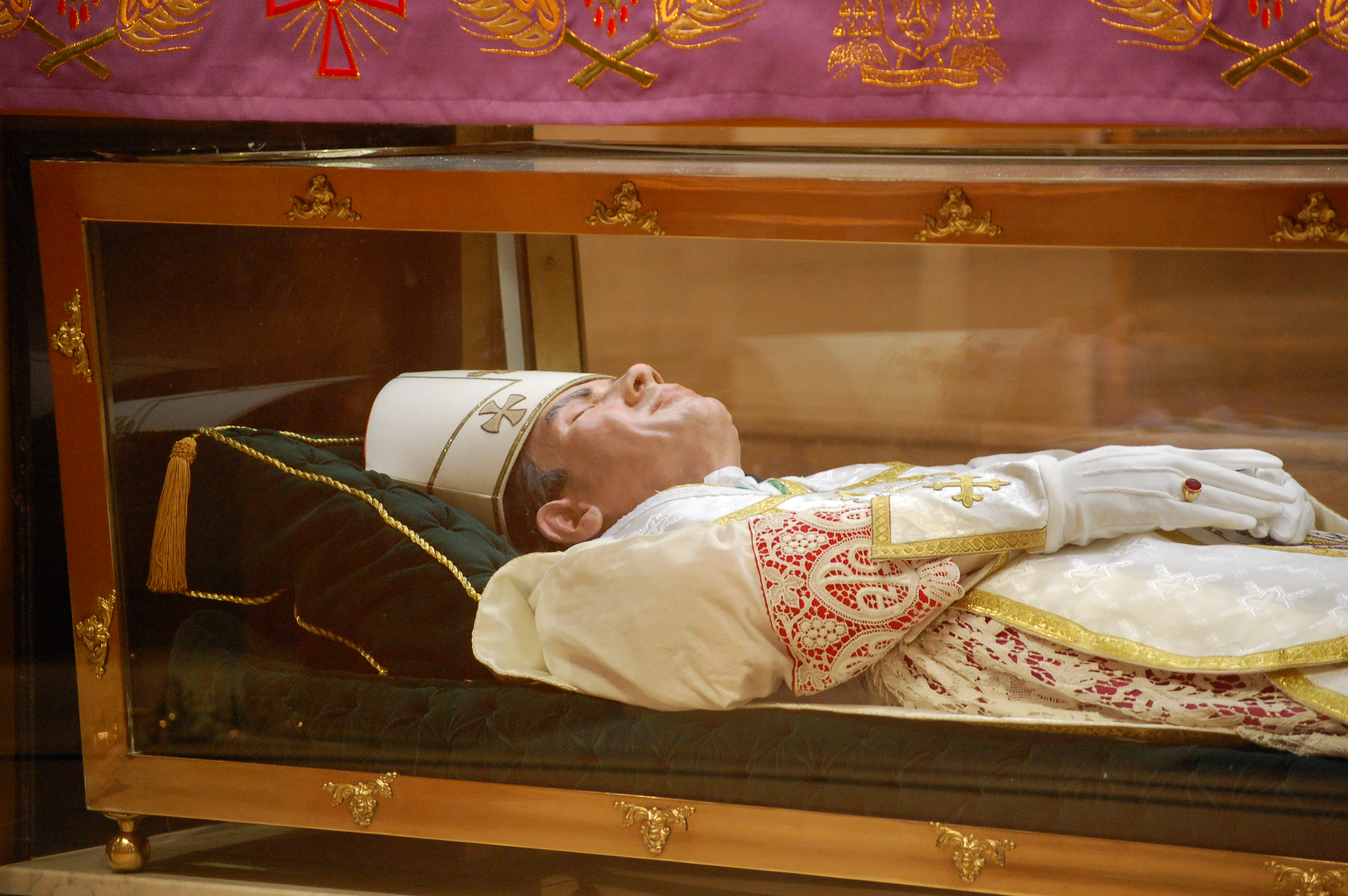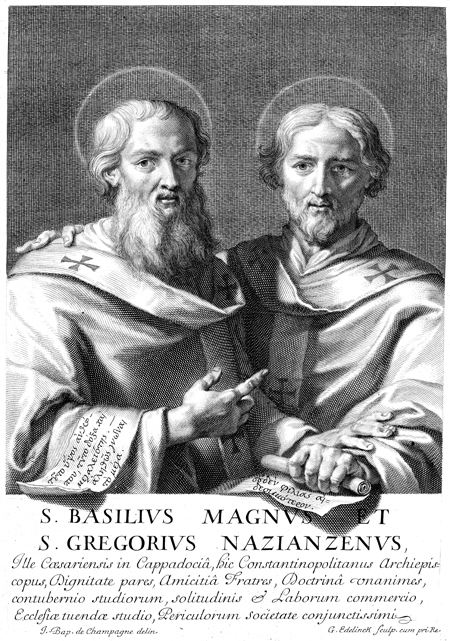
In the second reading, St. Paul speaks to the Corinthians giving them hope, that God can use those who count for nothing, to become witnesses of Christ’s love and power.
“God chose the weak of the world to shame the strong, and God chose the lowly and despised of the world, those who count for nothing, to reduce to nothing those who are something, so that no human being might boast before God.”
The first beatitude, “blessed are the poor in spirit”, is the door to the other beatitudes because we only begin to receive God's blessings when we appreciate our absolute need for them. It is only by God’s power and His providence, that we can do anything good. This beatitude reminds us the lowly have hope if they place their trust in God.
The Lord chose some of the weakest and most miserable men to become His apostles. For example, Matthew, was a tax collector, who was considered a traitor to the Jews for collecting taxing for the Romans. He most likely cheated people out of taxes. Peter, the first pope, and leader of the apostles, would deny Jesus three times. Peter, Andrew, James and John were mere fishermen, who the Lord called to found His Church. They were not experts in the scriptures. They were not priests or leaders of the Jewish people. Simon, was a zealot, which means, he wanted to forcefully remove the Romans from the occupation. St. Paul, was no angel either. He was responsible for the deaths of many of the early Christians and stood by, as St. Stephen was stoned to death. Yet, God chose Paul, to be bring the message of salvation in Jesus Christ, to the Gentiles, and to form churches. According to scripture, after His resurrection, who did Jesus first appear? A former prostitute, Mary Magdalene. Do you recall how the Jews looked down upon prostitutes and would even stone them to death when they were caught in the very act of adultery? And after her conversion, her love was so great, that she stood at the foot of the Cross and then attempted to anoint the body of Jesus after He was placed in the tomb that early Easter morning.
When Jesus was born, who were the first to discover the newborn king. Not chief priests, scribes or scholars of the law, but lowly shepherds, who lived out on the land.
When I was in high school, students would vote for one person, who would be considered the most likely person to succeed in the graduating class. Usually, the person was the one who was most talented, such as the ability to sing, to play a musical instrument, would excel in debate, to be the main character in the play, to receive the highest grades in the class, would excel in sports and letter in all of them. The person was usually popular and well liked among the other students and teachers. Often times, the person was chosen as the valedictorian for their academic achievements. It is beautiful to see how, at times, God gives special gifts to people at a young age and how they use their gifts for others.
However, in high school, there was also the least likely person in the class to succeed. Of course, there was no vote to see who he or she was, but it seemed everyone knew. The person likely had low grades, wasn’t involved in school activities, had few friends and sometimes, the person may have even got into trouble a lot. At times, the person came from a divorced family, had to work during high school sports and was unable to attend prom. Perhaps, he or she would even be involved in vandalism, drugs and went to underage drinking parties. Objectively, it would appear as though the person would end up in jail and or live a life of poverty.
Mother Angelica was someone, would have fallen into the category of being the least likely to succeed. Her parents divorced, she lived in a rat infested house, her mother had emotional problems and little Rita, and didn’t get good grades. Yet, God touched this young girl’s heart and called her to be His bride, as a religious sister, a Poor Clare nun of perpertual adoration, who would someday found the world largest non-profit Catholic television network called EWTN.
A young man, by the name of Donald Calloway, was atheist, drug addicted, and a high school drop out. His mother divorced two times and she remarried a third man. By the age of 13 he lived for pleasure. When his family moved to Japan, he connected with the Japanese mafia. The mafia filled his backpack with drugs and money to go to casinos. He was wanted by the Japanese government and American government. He was arrested and handcuffed by military police and kicked out of the country. In the US, he went to a rehabilitation center, but immediately failed after he got out. He wanted everything that had to do with pleasure, women seeking, drugs. For several years, he was almost perpetually high on drugs. At night he would look to the stars to find out, “What is the meaning?, “Why am I here?” “Where does the high live forever?” He wanted to feel good all the time.
One night, he didn’t want to go on living anymore. He picked up a book on the bookshelf. It was about Marian apparitions. The book talked about a beautiful woman, who would cause six children to drop to their knees when She would come, Our Lady of Medjugorje. He read the whole book in one night. This caused him to be interested in Catholicism. The first Catholic priest Donald ever met, invited him to attend Mass. After the priest celebrated Mass, the priest gave him a painting of Jesus. When he returned to his parents house, he took a good look at the painting of Jesus and noticed, Jesus had a kind and loving look on His face. He was surprised Jesus didn’t appear angry. It was the image was the Divine Mercy. He realized at that moment God loved him and he was wanted by God. Donald said, “All He wanted from me, was not a poetic prayer, but humility. To get on my knees and surrender my life to Him and I did.” He said, “I did so many bad things and hurt so many people, and yet, there is mercy for someone like me.”
When he became Catholic, he was baptized and all his personal sins and punishment due to his sins were washed away in the ocean of God’s mercy. He said there is in the world a whole ocean of mercy waiting for us. He wants everyone to know, “Jesus loves you and He came for you. No matter what shameless activity you have been involved in or how low you feel and how hopeless and pointless life may seem, God is madly in love with you. He’s longing for your friendship. He is panting for your heart. Give it to Him and trust in Him.” Donald Calloway would be ordained a priest for the Marians of the Immaculate Conception and today gives talks throughout many countries.
I would suspect Donald Calloway would have been the least likely person to succeed from his school, especially since he dropped out of and was a drug addict. But, God saw the misery of his soul, and through the gift of divine mercy, touched His soul through baptism and helped him to become a good Catholic and then an outstanding priest witness to God’s mercy. Now he absolves sins, offers the Holy Mass and gives Communion to the souls of those who come to receive Jesus into their hearts.
Recall the words of St. Paul in his letter to the Corinthians, “Consider your own calling, brothers and sisters. Not many of you were wise by human standards, not many were powerful, not many of noble birth. Rather, God chose the weak of the world to shame the strong, and God chose the lowly and despised of the world, those who count for nothing, to reduce to nothing those who are something, so that no human being might boast before God.”
Fr.
Don Calloway, Mother Angelica, Mary Magdalene, Matthew, James, John,
Peter, Andrew and the other apostles, and all sinners, who try to be
holy, we can say, “It is no longer I, who lives, but Christ who
lives in me.”, thanks to God’s infinite and unfathomable
mercy. We should never give up on anyone, because God certainly does
not. Rather, He calls every person to holiness. They only need to
fall in love with Jesus and follow the blue print to holiness, the
beatitudes.
May, Our Lady, Mother of Mercy, She who is the
refuge of sinners, and comforter of the afflicted, seek out the lost,
to help miserable souls to come in contact with divine mercy of
Jesus, who who loves us so much!

